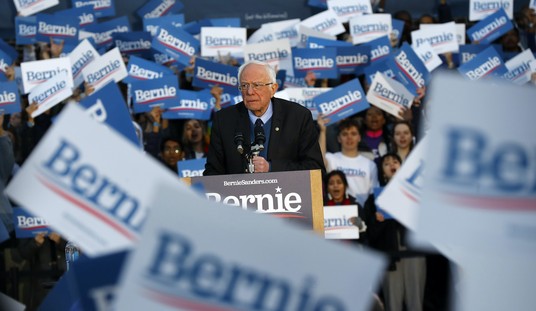Barack Obama’s plans to nationalize the health-care industry has run into one major snag — a lack of doctors. Shortages in both primary-care and specialist physicians has made it more difficult for Medicare patients to get care, but thus far, the administration has drawn the wrong lessons from the crisis. They’re offering the hair of the dog as a solution:
To cope with the growing shortage, federal officials are considering several proposals. One would increase enrollment in medical schools and residency training programs. Another would encourage greater use of nurse practitioners and physician assistants. A third would expand the National Health Service Corps, which deploys doctors and nurses in rural areas and poor neighborhoods.
Senator Max Baucus, a Montana Democrat and chairman of the Finance Committee, said Medicare payments were skewed against primary care doctors — the very ones needed to coordinate the care of older people with chronic conditions like congestive heart failure, diabetes and Alzheimer’s disease.
“Primary care physicians are grossly underpaid compared with many specialists,” said Mr. Baucus, who vowed to increase primary care payments as part of legislation to overhaul the health care system.
The Medicare Payment Advisory Commission, an independent federal panel, has recommended an increase of up to 10 percent in the payment for many primary care services, including office visits. To offset the cost, it said, Congress should reduce payments for other services, an idea that riles many specialists.
All of this is entirely, and dully, predictable. Ten days ago, I wrote how attempts to control costs in Medicare has led to an even more pronounced shortage of physicians who will accept Medicare patients. The government wants to disconnect prices from costs and cap the former, which eventually makes providing the care more costly than simply opting out of the network. That kind of market pressure inevitably creates flight of the best physicians — the ones who can attract and keep the most paying customers — leaving Medicare patients with a network of more mediocre providers, if any at all.
The solution offered by Obama and Baucus would exacerbate the problem. Instead of creating a profit incentive by relying more on market forces, they want to divide up the finite government subsidies to favor primary care physicians over specialists. This will result in fewer specialists, who provide acute care for specific conditions, such as nephrologists for renal failure, oncologists to treat cancer, and so on. The lack of doctors in these specialties will mean that sick people get sicker and stay sicker longer, and eventually will start dying at higher rates while waiting to see a disappearing roster of physicians.
This is exactly what has happened in Canada and the UK, two systems that use explicitly single-payer systems to regulate compensation for services. Because they do not provide enough extra compensation to specialists and surgeons, both countries have enough general-practice doctors but significant shortages of specialists, who won’t spend the time or the fortunes to specialize because the investment never pays off. It takes months for patients with acute, serious illnesses to get an appointment with the overburdened specialists still left in the system, months to get tests completed, and months more to get treatments started.
Dr. Peter J. Mandell, a spokesman for the American Association of Orthopaedic Surgeons, said: “We have no problem with financial incentives for primary care. We do have a problem with doing it in a budget-neutral way.
“If there’s less money for hip and knee replacements, fewer of them will be done for people who need them.”
In fact, that’s exactly why we’re seeing the problem in the Medicare and Medicaid networks. The new proposals from the Obama administration will amplify those pressures, not relieve them.








Join the conversation as a VIP Member